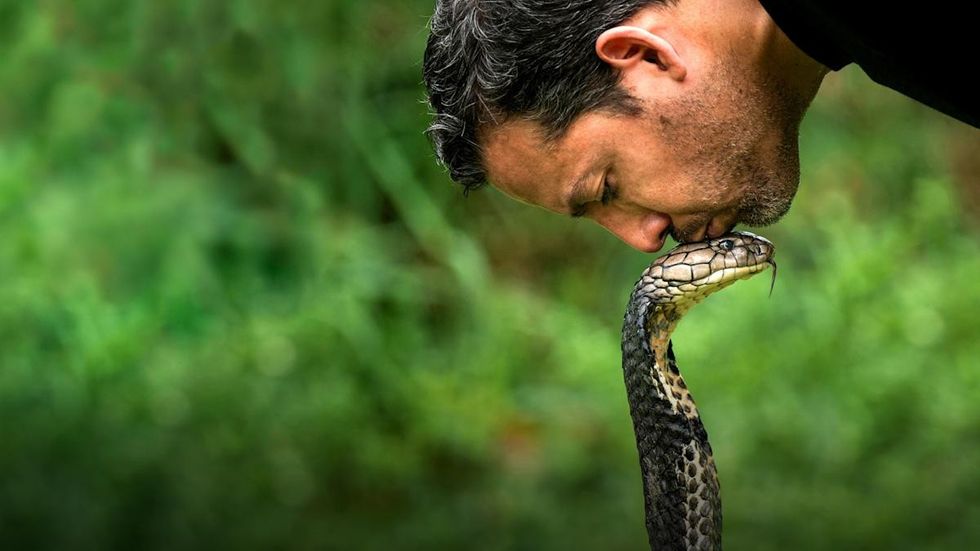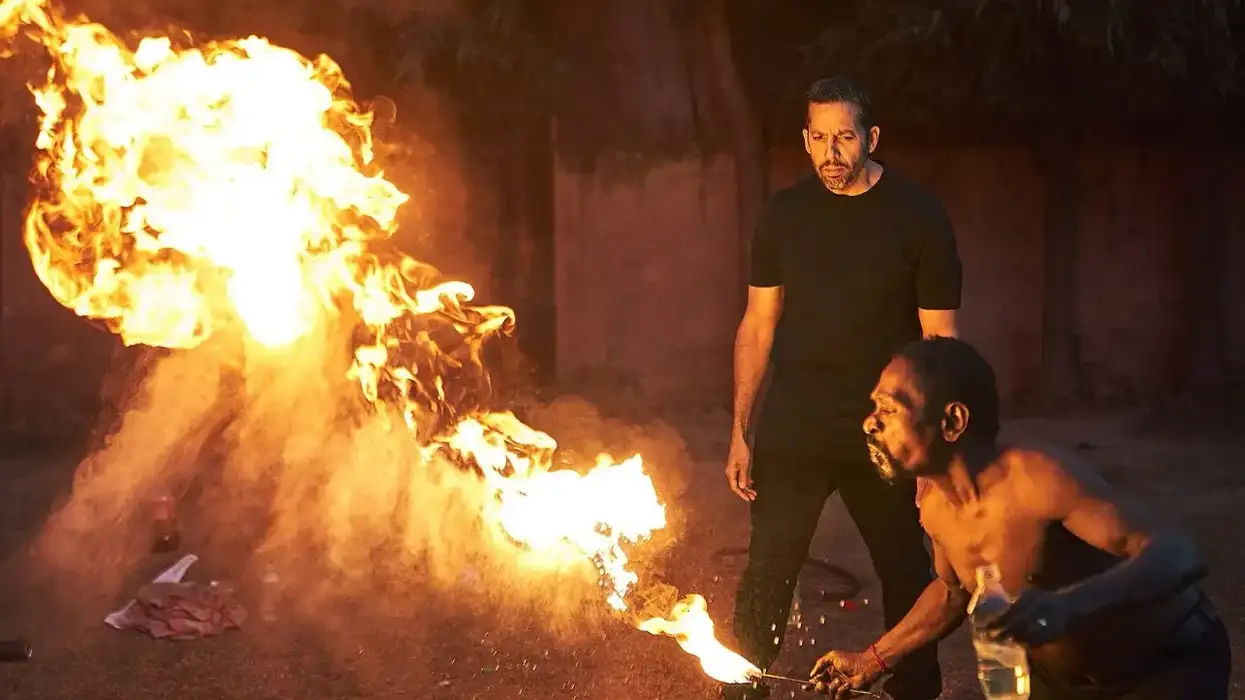Most people are perhaps not aware of the profound effect India has had on the world of magic.
American extreme magician David Blaine has drawn attention to India’s remarkable legacy in this field with his stunning new series Do Not Attempt, available on National Geographic Channel and streaming site Disney Plus.
The six-part series sees him travel around the world to different destinations, including East Asia, Brazil and the Arctic Circle. But it is episode three in India that is the most compelling and eye-catching.
Blaine points out that while other countries have conjurers who perform sleight of hand, India has, for centuries, been home to real extreme physical feats, inspiring him to attempt his own challenges that have captivated audiences worldwide. He reveals how he learned a lot from the Indian book Swami Mantra, which illustrates how to perform unbelievable feats of endurance, and how he applied these techniques to his act.

In the captivating India episode, Blaine meets a rickshaw driver with a mind-blowing fire act, where he sets himself ablaze without any protective gels, using just water and incredible skill. There is also a Punjabi man with phenomenal physical strength and a remarkable individual who repeatedly jumps into a huge pile of broken glass and smashes bottles on his own head.
Blaine also encounters Indian holy men who perform extreme feats, ranging from headstands with their faces completely buried in sand to piercing themselves with sharp metal objects. Some parts are difficult to watch, but they reveal the rich history of superhumans who have existed in India for centuries. There is one particularly shocking moment when a holy man passes a sword through his own neck – even the seasoned magician, watching in astonishment, could not explain how it was done.
Away from the more severe acts, Blaine also highlights India’s street magicians, who keep the tradition of illusion alive. From rope tricks to coin illusions, the roots of many modern magic tricks lie deep within India’s centuries-old street performances.
After watching this episode, you may feel squeamish at times but will walk away with a greater appreciation of India’s rich legacy and the profound impact it has had on the world. The next time you see a magician perform a physical stunt, the root of it likely lies in India.
Beyond India, the series showcases other fascinating locations where Blaine explores the limits of human endurance and illusion. Each episode of Do Not Attempt reinforces Blaine’s philosophy that magic is not just about deception, but about the astonishing capabilities of the human body and mind.
Blaine learns from those he meets and attempts to master some of their feats, including kissing a deadly poisonous king cobra. But it is the India episode that stands out in particular, because it highlights a side of magic rarely seen on mainstream platforms – one that is raw, spiritual and deeply embedded in history.
With Do Not Attempt, Blaine ultimately reminds us that the origins of many modern stunts go far beyond contemporary showmanship. For centuries, Indian fakirs, yogis and street magicians have defied expectations, using the body’s resilience and the mind’s strength to create jaw-dropping spectacles.
David Blaine’s stunning series is a fitting tribute to that tradition, ensuring that these incredible feats receive the global recognition they deserve.




